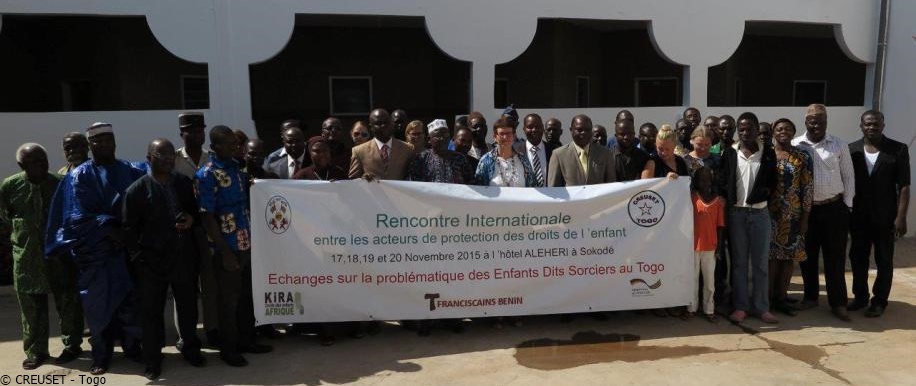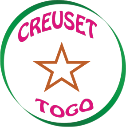Togo: “Children are not witches! Do not accomplice violence.”
.
Project regions: "Centrale" and "Kara" in Togo
Duration: ongoing campaign in the course of our projects in Togo.
Local partner: CREUSET-Togo
News:
A documentary on the topic is available in French here. It highlights the main achievements of our projects with CREUSET to protect children accused of witchcraft.
Earlier (and in English) France24 reported on the situation of children accused of witchcraft in Togo and on the commitment of our partner CREUSET to combat this phenomenon. The subject is delicate; hence CREUSET takes true risks to support these children. Caution, images and testimonies in this report can be shocking!
Context
The campaign “Children aren't witches! Do not accomplice violence!” is part of our projects for
- children in prison and police custody and fighting harmful practices, violence, exclusion and trafficking of children as well as
- fundamental rights and future prospects
in the Central region and the region of Kara in Togo.
In areas, where the individual submits himself to the community, every unusual physical or behavioral appearance or trait is regarded as dangerous, i. e. if a child has a disability, is hyperactive or particularly gifted. Special abilities, that are not considered to be “normal” are usually not tolerated especially in rural areas of Togo, but seen as sign of witchcraft that ought to be exorcised.
These children are excluded from their community and/or severely mistreated. Many children, particularly in rural areas, are exposed to cruel rituals that aim at chasing away the demons. In worst cases, children get mutilated or even killed. The number of unreported cases is high, and police often refuses to intervene, as these cultural acts are a taboo subject in public discourse and the fear of supernatural powers is widespread. Even though there are multiple civil society organisations, few are willing to get involved with this issue.
Affected children, however need urgent medical, legal, psychological and psycho-social assistance. They further have a right to participate in educative, pre-professional, sports and leisure activities, a right to participation in community life as well as to future perspectives.
Project Objectives
The project aims at raising awareness to this issue in order to break the taboo and spread conciousness about the rights and the interests of affected children. Thereby, violence against children is publicly denounced. Particularly children’s right to life, their physical well-being and social inclusion are defended by preventive actions, rehabilitation and reintegration programs. Political, legal and local authorities are included in this process to spread the word amoung their communities so that those accompany affected children adequately.
Involved Groups and Project Activities
CREUSETs center Kandyaa (“protector”) offers shelter to children in distress, i. e. to children living in the streets, children exposed to discrimination or to violence, mistreatment, neglect, human trafficking, exploitation etc. The center Kandyaa offers protection, as well as medical treatment, physical and psycho-social support and classes of basic education. Children participate in educative, cultural, sports and agro-pastoral activities that help them cope with their experiences and train their social and professional abilities.
The children (and their families) are prepared for their social and educational or professional reintegration. If necessary, they receive material support for school attendance, an apprenticeship or starting an income-generating activity in order to be more independent. Subsequent visits in their families and schools help to reassure a positive and lasting reintegration.
Many children that find refuge in the center and are later integrated into their own or a foster family, are very intelligent and show school performances above average.
State and civil society agents (members of police, judiciary, social service, civil society organizations, child rights activists, the media, religious and traditional leaders etc.) are informed and trained in order to assure an adequate rehabilitation of children accused of witchcraft and the prosecution of offenders.
Cover picture: Participants of the international seminar 2015 in Sokodé on the situation and the needs of children accused of witchcraft. Among the participants were representatives of civil society organisations and networks, governmental social services, police departments, lawyers, congregations, traditional and religious authorities, affected children as well as traditional healers.
No child shall be subjected to torture or other cruel, inhuman or degrading treatment or punishment, Art. 37 UN-CRC. © CREUSET





